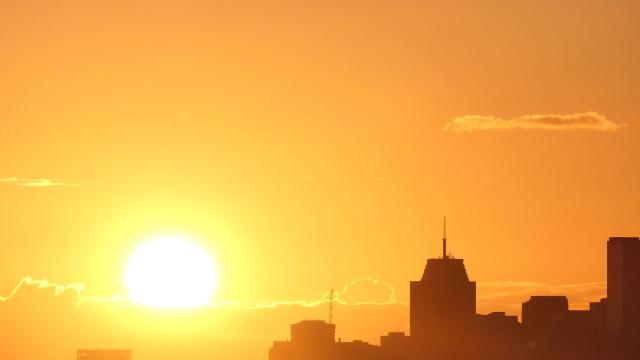Sydney’s weather has warmed up quickly, with two days in the past week sitting far too close (or beyond) to the 40-degree mark. The high temperatures, today’s especially, have resulted in a city-wide warning to reduce energy consumption on Thursday, December 14.
Minister for Climate Change and Energy Penny Sharpe has issued a notice stating that “Businesses, households and NSW Government agencies are being encouraged to temporarily reduce non-essential use of electricity late this afternoon and early this evening, when hot temperatures will increase demand for power”.
The statement pointed to expected highs of 40 degrees in parts of NSW, including Sydney, and that The Australian Energy Market Operator (AEMO) is concerned “the reserve of electricity supply will be under pressure”. Grand.
In essence, the warning has been issued in an effort to keep the electricity supply flowing in Sydney.
The peak energy use period, as predicted by the AEMO, is slated to be between 5:00 pm and 9:00 pm on Thursday, December 14. So, during this period, the community has been encouraged to reduce electricity use during these hours.
The suggested means of reducing energy during Sydney’s warm weather are:
- If you are using air-conditioning, raise the set point temperature to between 24 and 26 degrees. Each degree reduces energy use by around 10%.
- Reduce use of non-essential appliances. Use dishwashers, washing machines and dryers late at night or wait until the morning.
- If you have a pool, temporarily turn off the pool pump.
On the request regarding Sydney weather and energy use, Sharpe said the following:
“The NSW Government has worked closely with AEMO and network operators to prepare for this El Nino summer. Today’s events are an opportunity to put these arrangements in place.
“With the community and the NSW Government working together during hot weather we can help minimise the risk of disruption to the energy grid.
“Nobody should turn off an appliance they need. Instead, we’re asking households to make small changes to the way they use non-essential appliances, to make a big difference to demand on the network and power bills.”
If you’re looking for better ways to cool your home (or your body) as the warm weather in Sydney increases, we have a few suggestions on how to do that. Using blinds to increase shade, staying hydrated, and using spray bottles filled with cool water are just a couple of options – but you can find more here.
Lead Image Credit: iStock

Leave a Reply
You must be logged in to post a comment.